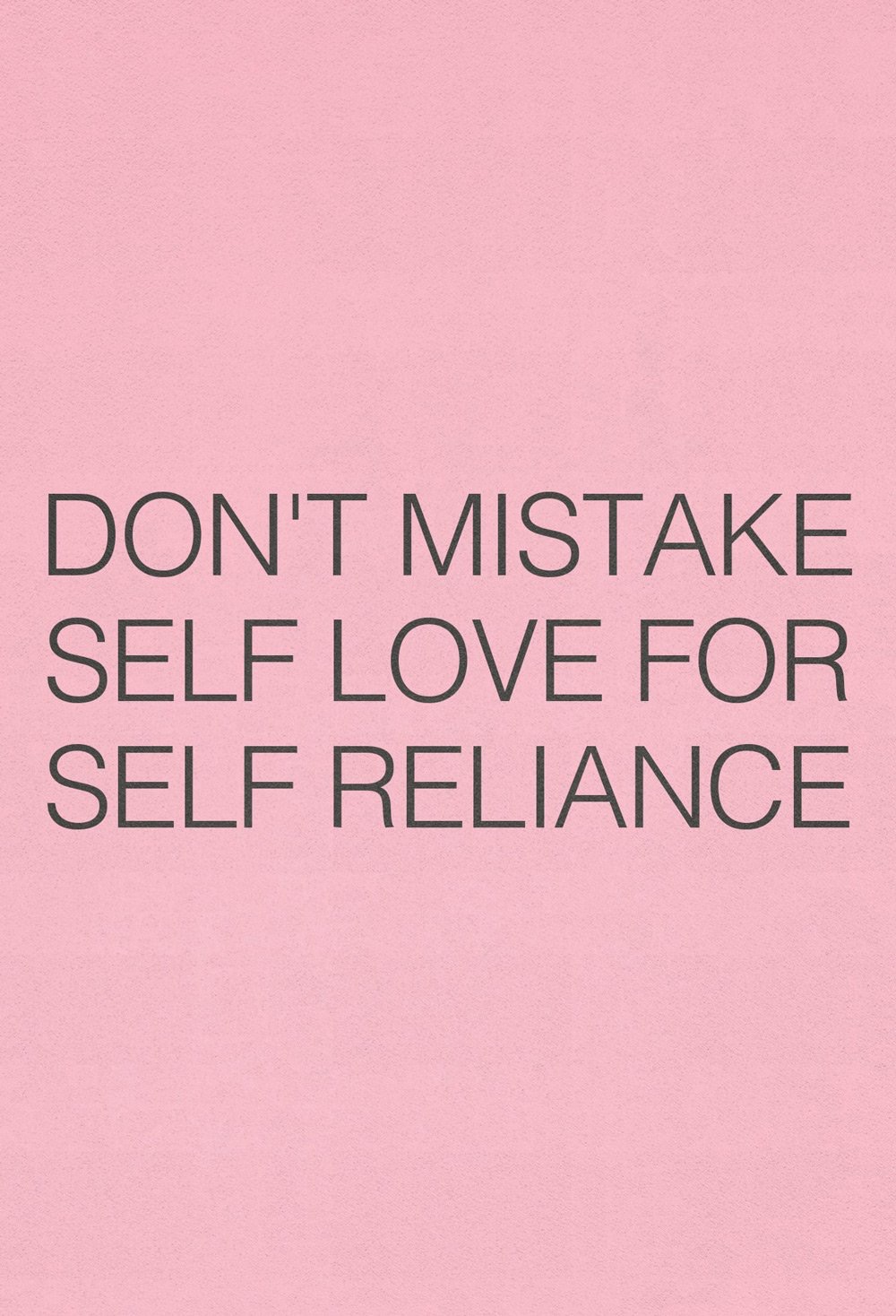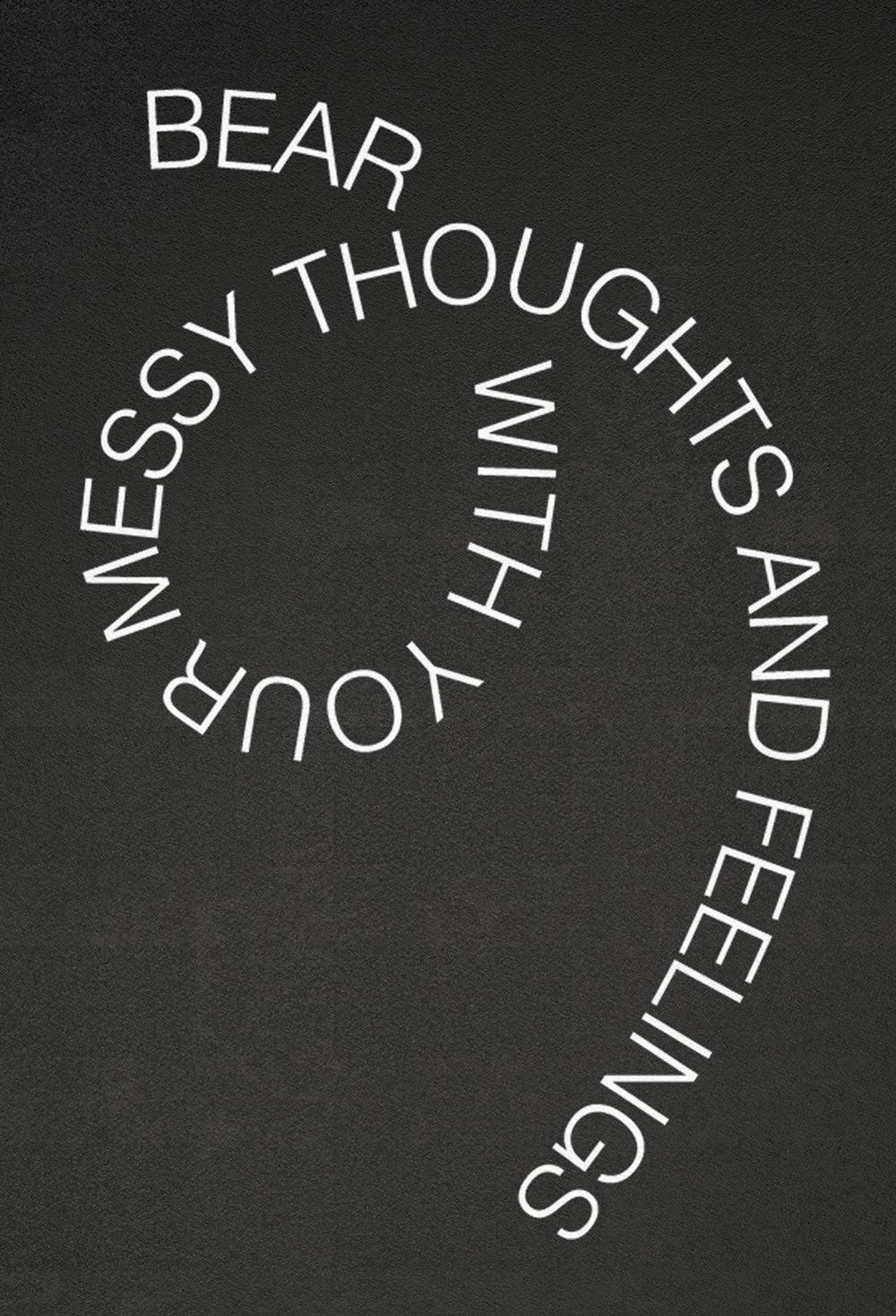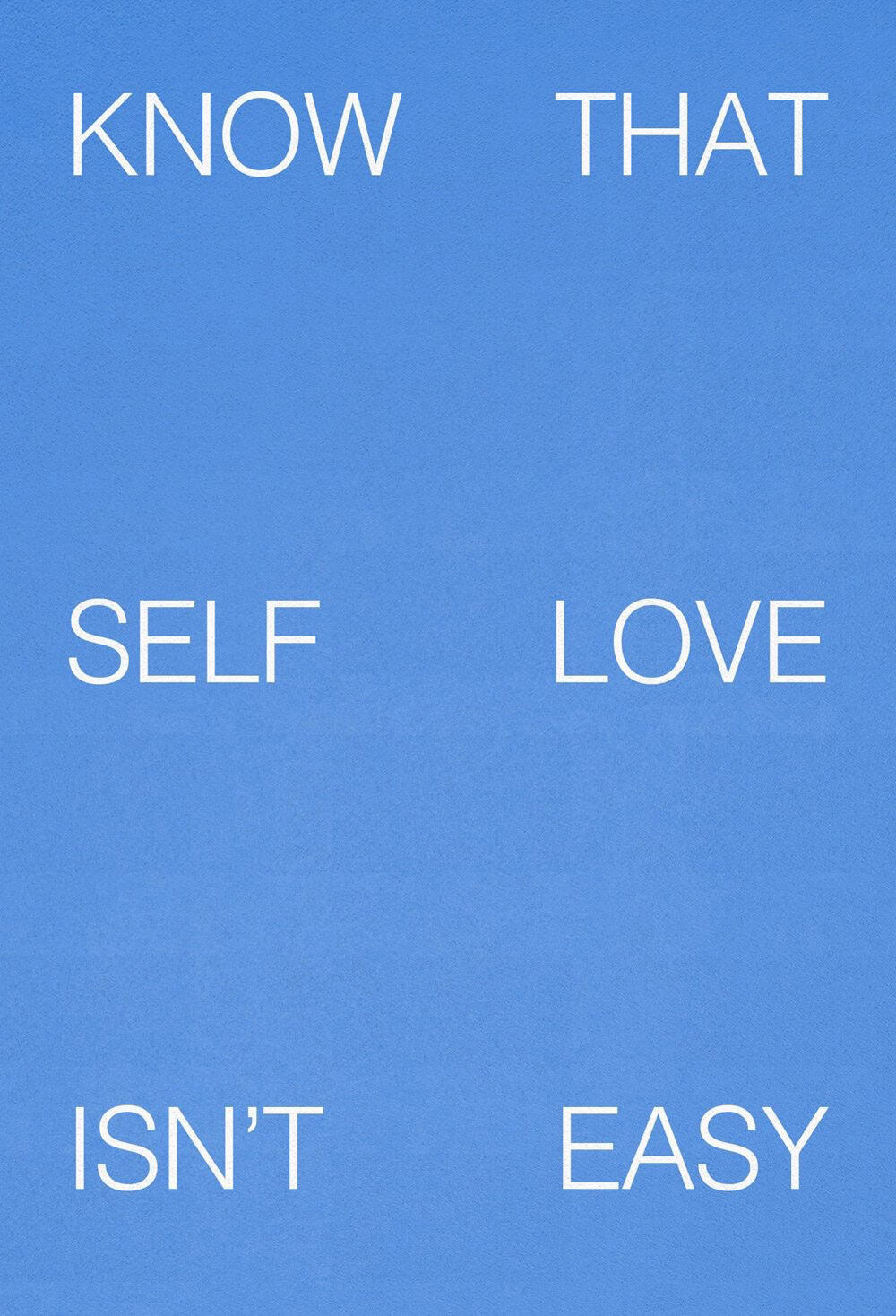
Self love: “Love yourself!” “How can you expect others to love you if you don’t love yourself?”
These sentiments and other principles of the self-love movement have caused so many of us to hold on tightly to the idea that we need to fully love ourselves in order to be loveable. That we need to have fully worked on ourselves, be all tidied up, put-together and completely emotionally, physically, socially and spiritually healthy before entering into a relationship or before we can be really loveable. Loving ourselves is not a prerequisite to being in a relationship, nor is it a reflection on how loveable we actually are.
We don’t learn to love ourselves in isolation, because we don’t exist in isolation. To be human is to need other humans and our capacity to love ourselves, is often based on the amount of love we’ve received from others. It’s all good and well shouting ‘love yourself’ at the top of our voices, but when that’s heard by those of us who have find it hard, those of us who experienced our needs going unmet, of having, countless disappointing relationships, prolonged periods of isolation or loneliness, abusive partners or emotionally neglectful parents — it can leave us feeling like we’re failing or that there is something wrong with us.
If this is you, know that you’re not alone in it. And if you find yourself feeling increasingly alienated by the self-love movement and get into a spitting rage every time you see quotes screaming at you from your Instagram feed — join us as we go deeper than the usual “have a long bath”, “put on a facemask”, “go for a walk”.
Obviously these are great too, but as the distance between us and our friends and family feels even more stretched out, it can serve us to think about what self-love looks like in realistic practice.

It can be great to have alone time, to have a bath, to cook ourselves a nice meal for one, but this isn’t self-love, it’s more self-reliance and self-sufficiency. Self-love, on the other hand, is inextricably linked to self-esteem, it being: our ability to see ourselves as a flawed, imperfect individuals and still hold ourselves in high regard. Self-love is the ability to not fall into a puddle of shame or self-hatred even when we mess up. It’s trying new things knowing that we could fail, without thinking of ourselves, therefore, as failures.
Self-reliance is often something we develop because we have to. It can end up becoming second nature and can be a great skill that helps keep us going when we feel like we are out in the world on our own. But when it comes to self-love, it can often feel more challenging, more conscious and less automatic. It is hard work. It looks like constantly speaking against our inner-critic and trying our best to unlearn the countless unhelpful messages we’ve received. It is noticing when what we are doing is more self-reliance, and questioning the often internalised belief that all we have is ourselves to depend on, that we would be bothering others if we were to ask for help.

We are all incredibly complicated and complex.
Our thoughts and feelings don’t always come to us clearly labelled, ready to be named out loud to a loved one looking at us in absolute confusion, wondering why we are in a funk and being standoffish. Sometimes our emotions can hide in our stomach, jaw or fists, tightly wound, knotted and sticky. They come out in our bodies and come out in our relationships, and it serves us to give ourselves a break when this happens. When we treat our emotions like enemies, that’s exactly what they start to feel like. Feeling shitty is not a sign that we’re doing life wrong.
When we invalidate or judge our own emotions, we strip them of their ability to teach us. Difficult emotions are a part of our contract with being a fully feeling, messy human being. To love ourselves is to allow space for them, without rushing to our emotional exits, shaming or ‘shoulding’ ourselves out of what we’re feeling.

When was it decided that we must love ourselves all by ourselves? In a world that so relentlessly tells us that we aren’t good enough (for that job, to be seen, heard and validated, for that relationship and so on..) — we set ourselves up for failure when we try to maintain a constant state beaming, self-love bliss. Sometimes we won’t like ourselves very much, never mind love. Sometimes we will make mistake and feel rubbish.
Knowing this, start with self-compassion, a bit of empathy and gentleness towards yourself and work your way up from there. Any kindness that you show your loved ones when they make a mistake, try to mirror that with yourself.
It also goes beyond face masks (although they’re great too). Self love isn’t just saying yes to things that we enjoy, it’s saying no to things that you don’t serve us. Is that thing you’re doing self-care or self-sabotage? Are you not responding to messages because you’re holding a boundary or are you not responding because you are withdrawing and isolating? Just like every other skill we have to learn, it takes practice and constant work.

Know that self-love is less about the ability to withstand loneliness or establish independence and more about awareness and acceptance of our incompleteness and imperfectness. Loving ourselves doesn’t have to be a radically individualistic pursuit. It’s about letting others love us even when we feel unlovable, because their version of us is often kinder than our own.
We all struggle loving ourselves, trusting others, coping with our emotions, communicating effectively, understanding ourselves, honouring our potential and feeling relatively authentic, confident and unashamed — and we beat ourselves up for not nailing these things 100% of the time.
If we let others into the less filtered parts of our lives, we would notice that we’re not alone in any of these struggles. So, challenge yourself today by letting a loved one, a friend or a colleague in on what might be really going on for you. Have that vulnerable conversation.
To recap:
- Don’t mistake self love for self reliance
- Bear with your messy thoughts and feelings
- Know that self love isn’t easy
- Let others in on it
———————————
Want a place to practice? You can book a 30 or 50 minute session in with one of our qualified therapists. Choose your date, your time and your location (in person or online, whatever suits you).
———————————
Special thanks to our friends at Lazy Oaf for the images.



